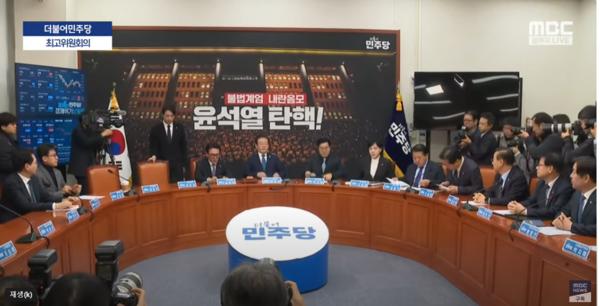Additional Budget Cuts Proposed by Democratic Party of Korea
In a recent development, the Democratic Party of Korea has decided to cut an additional 700 billion won from the already reduced budget, bringing the total reduction to 4.8 trillion won. This decision reflects the current political climate in South Korea, where the president is facing impeachment and the People Power Party is discussing suspension, job suspension, and transfer of authority.

Lee Jae-myung, leader of the Democratic Party of Korea, addressed the emergency supreme council meeting held at the National Assembly on Dec. 5, emphasizing the need for further budgetary adjustments. Following a closed supreme council meeting on Dec. 8, Han Min-soo, spokesperson for the Democratic Party, met with reporters and stated, "We discussed parts where unnecessary and urgent budgets were found in addition to the previously reduced 4.1 trillion won." Jin Sung-joon, chairman of the policy committee, elaborated, "The policy committee took the lead in identifying additional reductions," adding, "That amounts to 700 billion won."
The decision to cut an additional 700 billion won reflects the current political climate in South Korea. Jin stated, "This reflects the recent political turmoil," and explained, "Since the president is facing impeachment, and the People Power Party is discussing suspension, job suspension, and transfer of authority, we judged that we could further reduce the presidential office's project budget." He cited public opinion surveys as an example of the reduced presidential office projects.
Jin further explained, "When the president retires, he will move into a private residence, but although the private residence budget is not reflected in next year's budget, we reduced the budget related to the security of the former president in the private residence," adding, "If the president's office is doing nothing, isn't the presidential secretariat unnecessary as well? We reduced the salaries of political appointees at the secretary level."
In addition to the cuts related to the presidential office, the Ministry of Unification's projects, such as the "Global Unification Experience" and "Domestic and International Network and Consensus Building on North Korean Human Rights," were also targeted for budget reductions. These cuts reflect the opposition party's stance on prioritizing fiscal responsibility and addressing what they perceive as unnecessary expenditures.









Comments